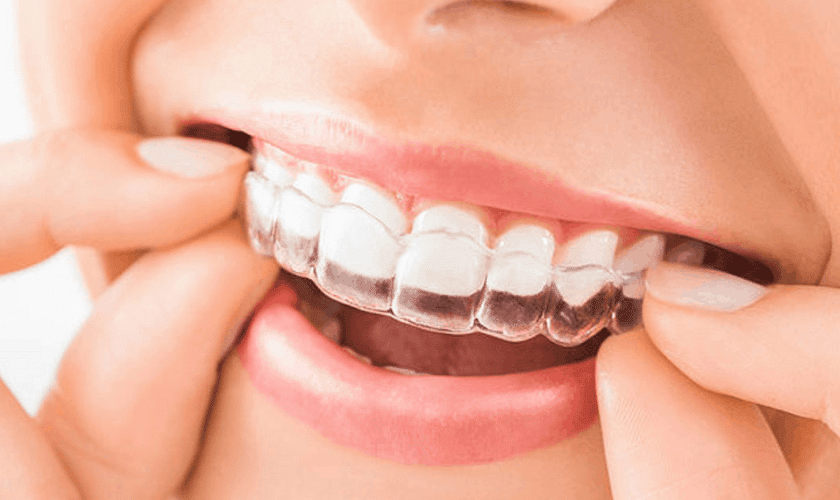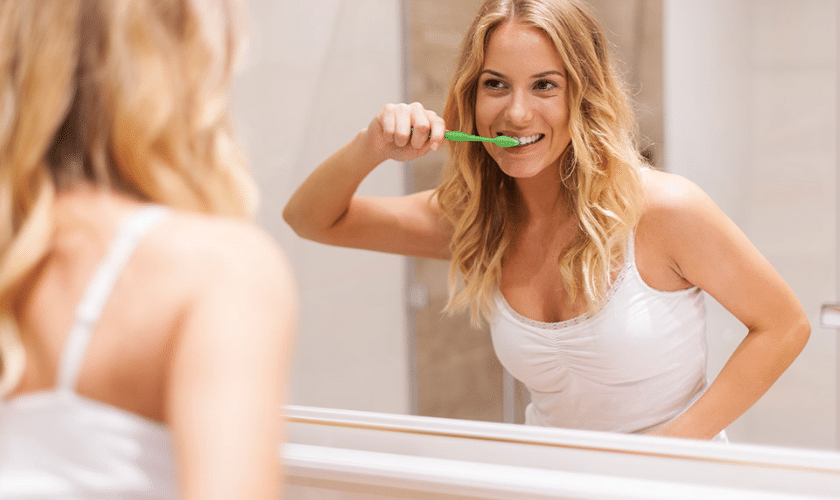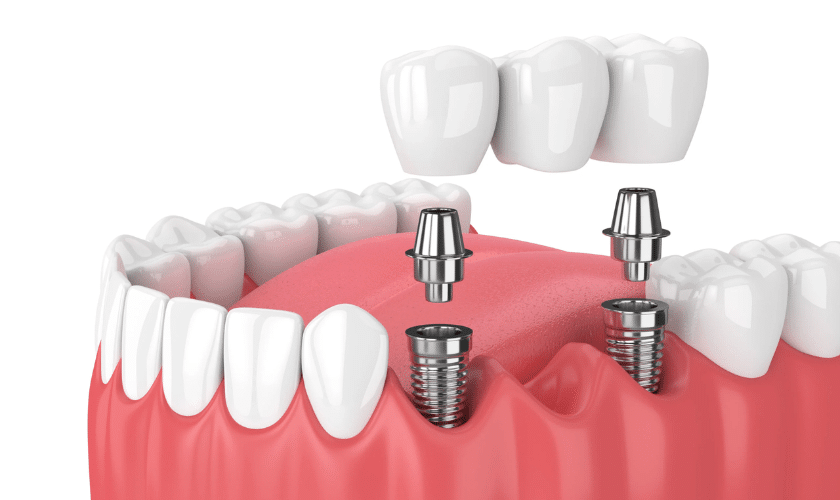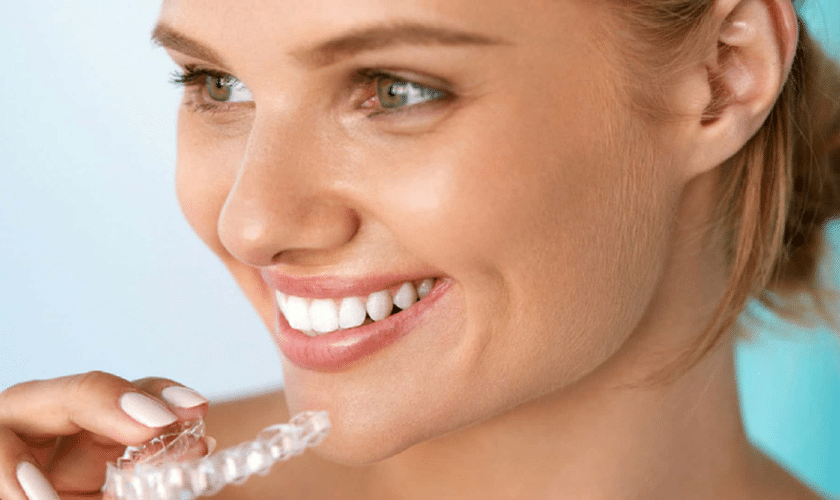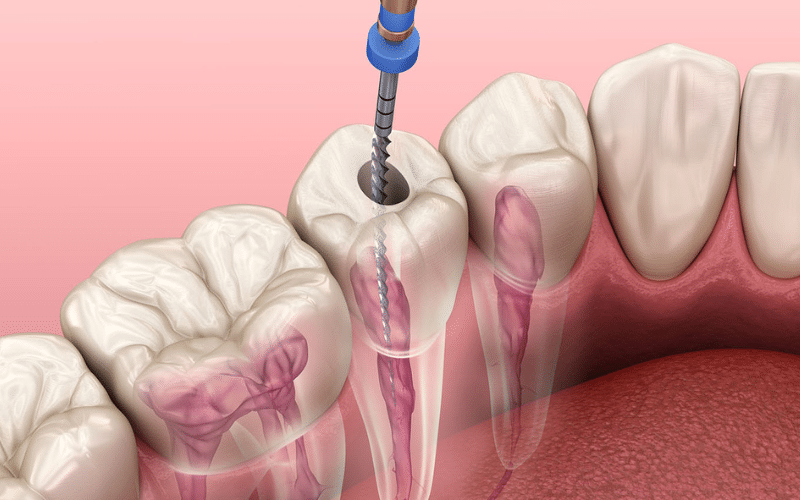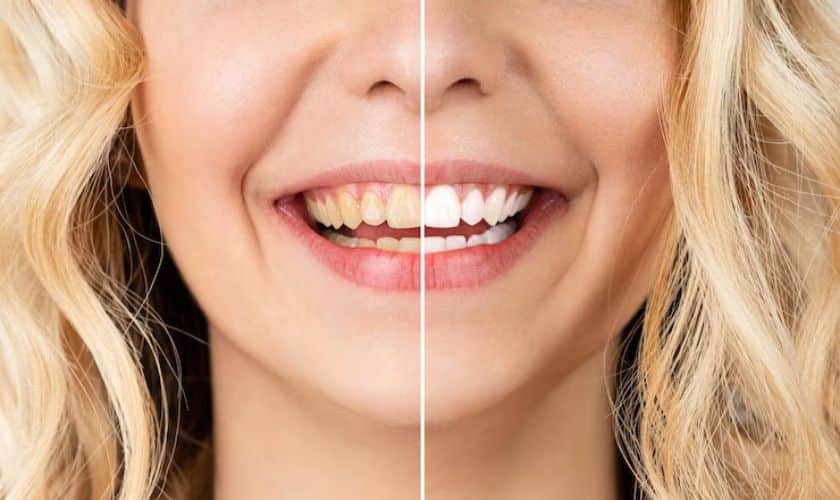
Bright, healthy teeth are not only a symbol of beauty but also an indication of good oral hygiene. We all crave that dazzling smile that lights up a room, right? However, achieving those pearly whites may require more than regular brushing and flossing. Enter the debate between teeth cleaning and teeth whitening – two popular dental procedures that promise to enhance your smile. So, what’s the difference between these two techniques? Which one is best for you? This blog post will dive deep into dental care and uncover the distinct effects of teeth cleaning vs. teeth whitening. Get ready to unlock the secrets to a brighter, healthier smile!
What Is Teeth Cleaning?
Teeth cleaning, or dental prophylaxis, is a routine procedure dental professionals perform to remove plaque and tartar buildup from the teeth. It involves thoroughly cleaning the teeth and gums to maintain optimal oral health.
During a typical teeth cleaning appointment, your dentist or dental hygienist will use specialized tools to scrape away any accumulated plaque and tartar that cannot be removed through regular brushing and flossing. This process is known as scaling. Next, they will polish your teeth using gritty toothpaste to remove surface stains and make them smoother.
But why is teeth cleaning so important? Well, even with regular brushing and flossing at home, it’s nearly impossible to effectively reach all areas of your mouth. Over time, plaque can harden into tartar, leading to gum disease if left untreated. You can prevent gum disease and maintain healthy teeth by scheduling regular professional cleanings every six months or as your dentist recommends.
During a routine cleaning appointment, your dentist may examine your oral cavity for signs of cavities or other dental issues. They may also review proper brushing techniques with you or offer advice on maintaining good oral hygiene habits.
Professional Teeth Cleanings
Teeth whitening, also known as dental bleaching, is a cosmetic procedure aimed at lightening the color of your teeth and improving their overall appearance. Over time, our teeth can become stained or discolored due to various factors such as aging, consumption of certain foods and beverages (like coffee and red wine), smoking, or poor oral hygiene.
Teeth whitening involves using chemical agents to remove surface stains and lighten the shade of your teeth. The most common method is applying a bleaching gel that contains hydrogen peroxide or carbamide peroxide directly onto the tooth enamel. This gel helps break down the stains into smaller particles, making them less noticeable.
Dentists typically perform professional teeth whitening treatments in their offices. They use stronger concentrations of bleaching agents compared to over-the-counter products for more effective results. In-office treatments often involve specialized lights or lasers to activate the bleaching agent and accelerate the whitening process.
It’s important to note that while teeth whitening can effectively remove extrinsic stains on your teeth’s outer layer (called enamel), it may not be as effective on intrinsic stains caused by factors like genetics or medication use.
Different Types of Teeth Cleanings
Prevents Plaque and tartar buildup: Regular teeth cleaning removes plaque and tartar, preventing gum disease and cavities.
Healthy Gums: By eliminating bacteria and debris, teeth cleaning helps maintain healthy gums and reduces the risk of gingivitis and periodontitis.
Fresher Breath: A clean mouth leads to fresher breath, enhancing self-confidence in social interactions.
Brighter Smile: Removing stains and discoloration through teeth cleaning contributes to a brighter, more attractive smile.
Systemic Health: Proper oral hygiene has been linked to reduced risks of systemic health issues, such as cardiovascular disease and diabetes.
Improved Aesthetics: The primary benefit of teeth whitening is its ability to brighten teeth, removing stains and discoloration caused by various factors like food, drinks, smoking, and aging. This results in a more attractive and radiant smile.
Enhanced Self-Confidence: A brighter smile can boost self-esteem and confidence. Feeling good about teeth can increase social interactions and a more positive self-image.
Youthful Appearance: Our teeth may become stained and lose their natural whiteness as we age. Teeth whitening can reverse this effect, giving the impression of a more youthful smile.
Non-Invasive Procedure: Teeth whitening is a non-invasive dental procedure typically involving hydrogen peroxide or carbamide peroxide-based solutions to lighten the teeth. It’s a relatively simple and safe process.
Positive First Impressions: A bright smile can leave a lasting impression on others. White teeth are often associated with good oral hygiene and can positively influence how others perceive us.
Motivation for Oral Health: After teeth whitening, individuals often become more motivated to maintain their dental hygiene to preserve the results, leading to better oral care habits.
Which Is Better For Your Teeth – Teeth Cleaning vs. Teeth Whitening?
When deciding between teeth cleaning vs teeth whitening, the answer ultimately depends on your dental needs and goals. Both procedures serve different purposes and offer unique benefits.
Teeth cleaning is an essential part of maintaining oral hygiene. It involves the removal of plaque, tartar, and stains from the surface of your teeth. Regular dental cleanings help prevent gum disease, cavities, and bad breath by eliminating harmful bacteria that can accumulate in hard-to-reach areas.
On the other hand, teeth whitening focuses solely on enhancing the aesthetics of your smile by lightening the color of your natural tooth enamel. This procedure uses bleaching agents to remove deep stains caused by aging, smoking, coffee consumption, or certain medications.
Suppose you prioritize oral health and want to maintain a clean mouth free from plaque buildup and potential dental issues like cavities or gum disease. In that case, regular teeth cleanings are crucial. They keep your mouth healthy and give you fresher breath and a brighter smile as they remove surface stains.
However, teeth whitening may be more suitable if you want a whiter smile or address discoloration that cannot be removed through regular brushing alone. It can boost self-confidence by improving the appearance of yellowed or stained teeth.
It’s important to note that while both procedures have their advantages regarding oral care routines, they are not mutually exclusive options. Many individuals opt for both treatments to enjoy optimal oral health along with a dazzling white smile.
Whether you choose regular professional cleanings or undergo a teeth whitening treatment will depend on what you hope to achieve concerning health maintenance and cosmetic enhancement. Consulting with your dentist will allow them to assess your unique circumstances accurately and recommend appropriate solutions tailored to your needs. Remember, a healthy smile is a beautiful smile!

